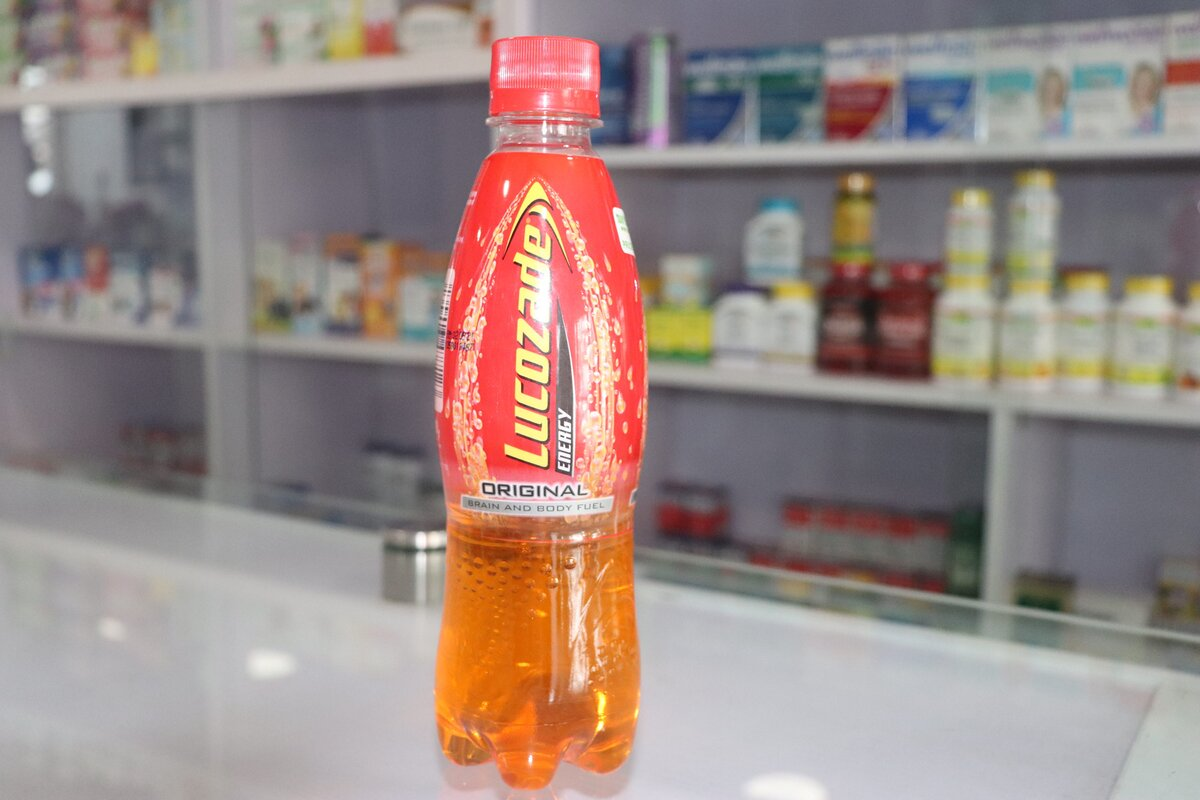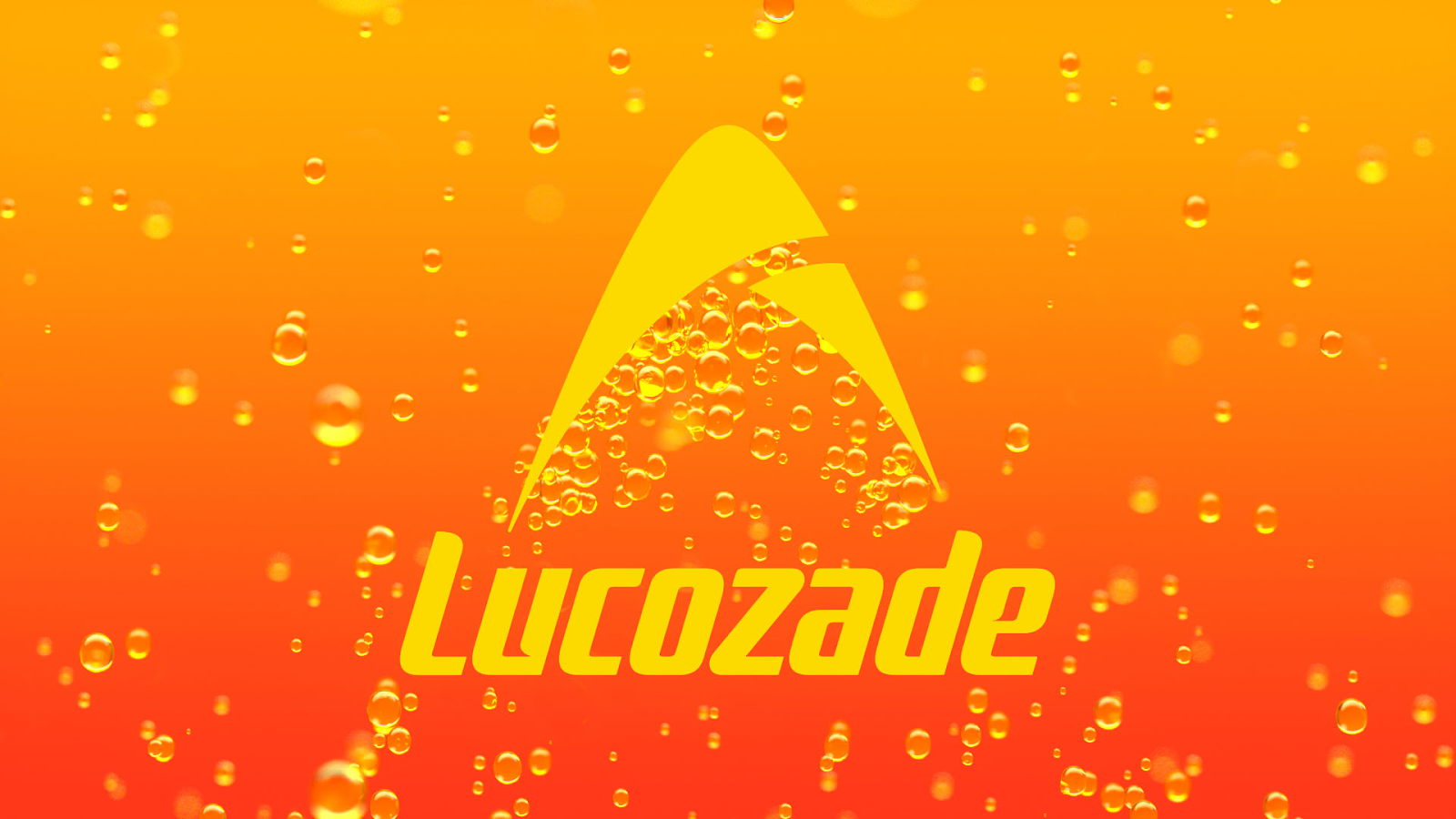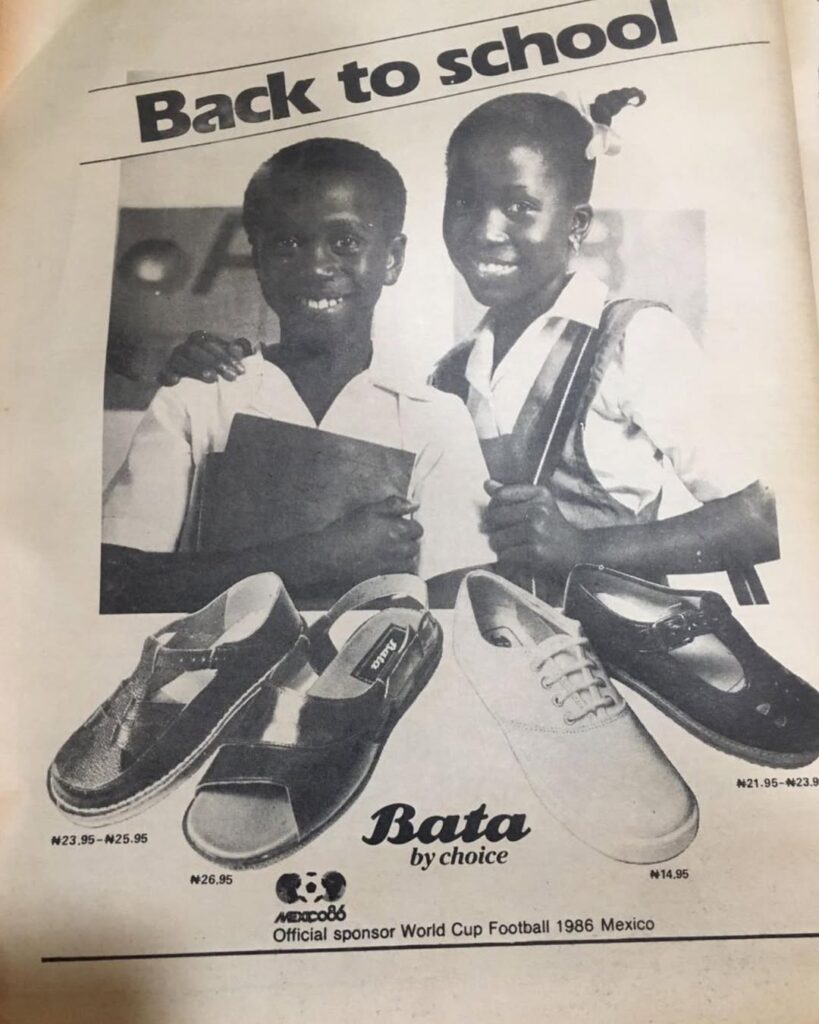Discover how Lucozade transformed from a hospital bedside drink into Nigeria’s most beloved energy icon

In a country where trends change fast and foreign brands struggle to connect, Lucozade remains a timeless Nigerian classic. From hospital beds to Sunday jollof parties, the fizzy orange drink somehow made its way into almost every part of our lives. There is rarely a Nigerian home that is not familiar with the Lucozade energy drink.
But how did a UK-born drink, originally made for the sick, become Nigeria’s unofficial energy booster? More importantly, how is it still thriving despite inflation, changing tastes, and younger competitors?
Let’s break down the unexpected business and emotional legacy of Lucozade in Nigeria.
From Sickbeds to Store Shelves: A Drink is Born
In the 1970s and 80s, a bottle of Lucozade was practically a fixture at hospital bedsides across Nigeria. The drink – then sold in distinctive glass bottles wrapped in crinkly orange cellophane – was the go-to tonic for sick patients. Originally invented in 1927 by a British pharmacist as “Glucozade,” it was marketed as an energy drink for the sick.
Its early advertising proudly declared “Lucozade aids recovery,” and for decades it was sold mostly in pharmacies. In Nigeria, many of us grew up with the idea that if you came down with malaria or typhoid, a thoughtful visitor would arrive with some fruit, maybe a pack of Ribena, and definitely a bottle of Lucozade to help you get your strength back. Some kids even joked about pretending to be ill just to enjoy that fizzy sweet treat reserved for the convalescent.
But Lucozade wouldn’t remain confined to sickrooms forever. By the early 1980s, the brand’s owners realized this medicinal image was limiting its potential. In 1983, a major repositioning began: Lucozade shed its clinical reputation and rebranded as a sporty, everyday energy drink.
By the early 2000s, The slogan “Lucozade replaces lost energy” took over from the old “aids recovery” message. The iconic orange cellophane wrap was dropped, and the drink moved from the pharmacy shelf to the supermarket aisle. New plastic bottles and new flavors made the shift even clearer; this drink was no longer just for sick people.
The Results?

The strategy paid off big time: in the UK alone, sales tripled between 1984 and 1989 after Lucozade embraced its new identity.
The First Energy Drink Nigerians Fell in Love With
Long before Red Bull or Monster ever hit our shores, Lucozade was essentially Nigeria’s first real energy drink. GlaxoSmithKline (GSK), which had acquired the Lucozade brand through a series of mergers, made sure the drink was not only available but also locally produced and marketed in Nigeria.
Throughout the late 20th century, Lucozade gradually transitioned from a hospital tonic to a household staple. It retained its distinctive sweet citrus flavor and glucose base – notably containing no caffeine – which made it stand out from the later wave of jitter-inducing energy drinks.
By the 1990s, Nigerians were picking up Lucozade not just for sick relatives, but for themselves – a quick pick-me-up during the day or a refreshment at parties. When foreign competitors like Power Horse and Red Bull entered the Nigerian market in the early ’90s, Lucozade already had a decades-long head start in the hearts of consumers. It was the drink many had literally grown up with. Parents trusted it, and young adults saw it as a familiar source of energy.
Over time, GSK Nigeria also innovated to keep Lucozade’s appeal broad. They introduced Lucozade Boost, essentially the same glucose energy drink but positioned for a younger, active crowd. Smaller packs and Tetra Pak cartons appeared to make it more affordable and convenient. The idea was to shake off any remaining notion that Lucozade was only for when you’re under the weather.
Rebranding an Icon: “Energizing” a Nation
Even with its growing popularity, one challenge lingered: some Nigerians still subconsciously associated Lucozade with sickness. Old habits die hard. If your grandmother always gave you Lucozade when you had a fever, it’s hard not to reserve it for “weak” moments. By the late 2000s, the brand’s marketers knew they had to completely reinvent the narrative if they wanted everybody – not just convalescents – reaching for Lucozade regularly.
GSK’s marketing campaigns in Nigeria started to tap into emotion and everyday life rather than hospitals. In 2009, they launched a new slogan “Energizing the Nation” to celebrate Nigerians’ vitality. The company highlighted how hardworking Nigerians needed safe, daily energy – and proudly noted that Lucozade had “gained universal acceptance” and become “one of the most respected brands in Nigeria”. No longer was Lucozade being spoken of as just a glucose drip in a bottle; it was now about fueling the ambitions of a young and bustling country.
As the brand changed hands in 2013 from GSK to Japan’s Suntory, the momentum continued. Lucozade Nigeria’s marketing team doubled down on shifting perceptions. A particularly clever campaign reframed the idea of “sick.” Instead of avoiding the word, they played with it: “Everyone has something they’re sick (and tired) of,” the campaign insight went.
Maybe you’re sick of Lagos traffic, or sick of endless Zoom calls, either way, Lucozade can give you the energy to get through it. The tagline “Energy To Get Through It” drove home the point that Lucozade is not just for illness, rather it’s the pick-me-up for any tiring situation.
This cheeky approach directly tackled the old stigma. In line with that message, the brand started positioning itself not as a remedy for your body’s weakness, but as fuel for life’s everyday challenges. They were telling Nigerians: you don’t have to be literally ill to deserve a Lucozade; even if you’re just fed up or exhausted, we’ve got your back.
Staying on Top in a Crowded Energy Market
Today, Nigeria’s energy drink market is bursting with options. There’s Red Bull and Monster for the party crowd, Fearless and Big Bull vying for the mass market, and even indigenous brands like Supa Komando in the mix. Yet Lucozade continues to hold its own as the ultimate energy icon that transcends generations.
It hasn’t been by luck; Lucozade’s owners have actively refined the brand to maintain its lead. One big reason is that Lucozade evolved while staying true to its core. It’s still fundamentally a glucose-based drink, which means quick energy without the high-caffeine jitters. For many consumers, that’s a healthier-sounding proposition. “Glucose is a non-stimulant, healthier source of energy which works with my body, not against it,” as one Suntory Nigeria executive noted. Beyond that, the company has employed several other strategies over the years to keep Lucozade Nigeria on top:
- New flavors for local tastes: Constantly introducing variants (from tropical fruits to a unique Lucozade Cola) to stay “fun” and appealing to young Nigerians.
- Affordable pack sizes: Rolling out smaller bottles and even sachets of Lucozade Boost so that everyone can afford an energy boost.
- Healthy energy messaging: Emphasizing its non-caffeinated, glucose formula as a source of safe everyday stamina – an edge over high-caffeine rivals.
There’s More…
But product tweaks alone aren’t what made Lucozade beloved. Perhaps most importantly, the brand nurtured an emotional connection with Nigerians. It has consistently engaged consumers with memorable promotions and rewards that resonate. Even amid tough times, Lucozade went out of its way to give back – for instance, running nationwide promos that handed out free mobile airtime to thousands of customers. The message was clear: we’re in this with you. Marketing Director Rosemary Akpo explained that one such campaign was designed for “Everyday Strivers” aged 18–35 – the hustling young Nigerians who are always on the go. By helping them “recharge” their phones (while recharging their bodies), Lucozade showed it understood its core audience’s needs.
That tradition continues. Just last year in 2024, Lucozade Nigeria rolled out a wildly popular promo called “Big W Energy” – a scan-and-win contest that had people nationwide buying bottles and scanning the QR codes under the caps. Two lucky winners in Nasarawa and Lagos walked away with ₦500,000 cash each, just for enjoying their favorite Lucozade Boost. (The grand prize was ₦1 million, for the record). The campaign generated huge buzz and reminded everyone that Lucozade is still very much around, rewarding its loyal fans. “Keep enjoying the refreshing energy of Lucozade Boost… Who knows? The next big winner could be you,” the brand teased during the promotion.
All these efforts reflect a brand that has managed to stay relevant decade after decade. While many products fade as new fads emerge, Lucozade has remained a constant; partly due to nostalgia, and partly due to this kind of smart reinvention. As one market observer noted, Lucozade’s name “rings a bell in every household in Nigeria”. It’s hard to argue with that. No matter where you are in the country, you’ll find that familiar orange label in kiosks, supermarkets, and roadside stalls.
What Brands Can Learn from Lucozade

The success of Lucozade teaches a powerful lesson: you don’t need to be the trendiest; you just need to be unforgettable. This is a principle that other brands like Indomie have employed.
Brand loyalty in Nigeria is often built on emotional value, not only on algorithm-driven marketing. If you build trust, Nigerians won’t just remember you. They’ll stick with you through thick and thin.
That’s exactly what Lucozade did. The question is simple: can your brand do the same?
Final Thoughts: Lucozade’s Staying Power Is Emotional, Not Just Functional
So, how did Lucozade beat time, trends, and tight wallets? It tapped into Nigeria’s greatest resource: emotional loyalty. It moved beyond being just a glucose drink to becoming part of Nigerian culture; quietly, deeply, and consistently.
And that’s the kind of brand power that even sapa can’t erase.












